
Organic coffee is grown without the use of prohibited agrochemicals, such as pesticides, herbicides, and certain fertilizers. Ally Coffee offers a range of organic coffees produced in different countries around the world. Organic coffee farming takes many forms and always responds to the local conditions. In some origins, organic coffee production happens under the shade of canopy trees; in other origins it takes a more intensified form with regular applications of organic fertilizers and other natural applications to control for disease.
Many producers grow coffee organically but are not able to obtain the seal of certification for financial or logistic reasons. Coffees that do achieve organic certification come fro farms or cooperatives who have made a multi-year investment not only in the health of their land and the well-being of their communities but also in the timely compliance with international standards and careful record keeping and documentation of their farming practices.
Organic agriculture requires different attention to detail, willingness to adjust, and patience than conventional agriculture. Due to moisture levels, soil composition, and solar exposure, not all farms are suited to undertaking organic coffee production. For those farms that do have the necessary conditions, it still takes years, even decades, to build the fertile soils, establish balanced biodiversity, and to implement the preventative strategies that make coffee production viable without the use of agrochemicals. Organic coffee farm in Jaen, Peru
Organic coffee farm in Jaen, Peru
Peru
Coop CEDROS CAFÉ — Jaen, Cajamarca
Coop CEDROS CAFE brings together producers, conserves biodiversity, includes women producers in its management, and generates opportunities for the next generation. The cooperative has 280 member families and 10 permanent employees. Coop CEDROS CAFE’s main facility is located in Jaén, Cajamarca. Members’ farms span elevations between 1200 and 2000 meters above sea level and cover a total of 640 hectares. CEDROS CAFE coffee is certified both Fairtrade and Organic.



 Agroforestry and conversion to restored land (above) CEDROS CAFE members and central facility team (below)
Agroforestry and conversion to restored land (above) CEDROS CAFE members and central facility team (below)The co-op began as the Business Center for Sustainable Rural Coffee Development in 2009 and in 2013 became a cooperative. Members grow coffee under the shade of hardwood trees and use organic coffee production as part of a land restoration and reforestation project to revitalize the forests at the perimeter of the Amazon rainforest. Through planting native tree species and eliminating the introduction of any chemicals to the soil, the mountainsides recover from the abuse of slash-and-burn farming and begin a transition back to healthy, diverse ecosystems. Read more about the Café Selva Norte agroforestry project.
Colombia

La Pradera — Aratoca, Santander
La Pradera Hacienda Cafetera is a family owned and operated organic estate farm in Aratoca, Santander, Colombia in the Cordillera Oriental Eastern Mountain Range, about two hours from the department capital of Bucaramanga. The Chicamocha Canyon, the second largest in the world, creates a unique microclimate extremely favorable for coffee, with warm air currents during the day and cool breezes and rain at night. La Pradera is committed to education and youth leadership projects in the community. Currently, Hacienda La Pradera has 15 permanent employees and 172 seasonal employees, with 30 women working on the farm.
La Pradera coffee company was created in 1971 by Mr. Héctor Daza and was the starting point of a lifelong commitment to environmental practices. He began transforming the family farm into a coffee paradise by planting diverse timber and fruit trees, which created a shade canopy for the different varieties of coffee. Today the farm’s shade canopy includes anaco, galapo, guayacán, bucaro, aro, garrocho, guamo, oak, and ceiba trees and orange, avocado, tangerine, banana, and achacha fruit trees. Oscar Daza, the third generation of coffee producers in his family, today assumes leadership of La Pradera.

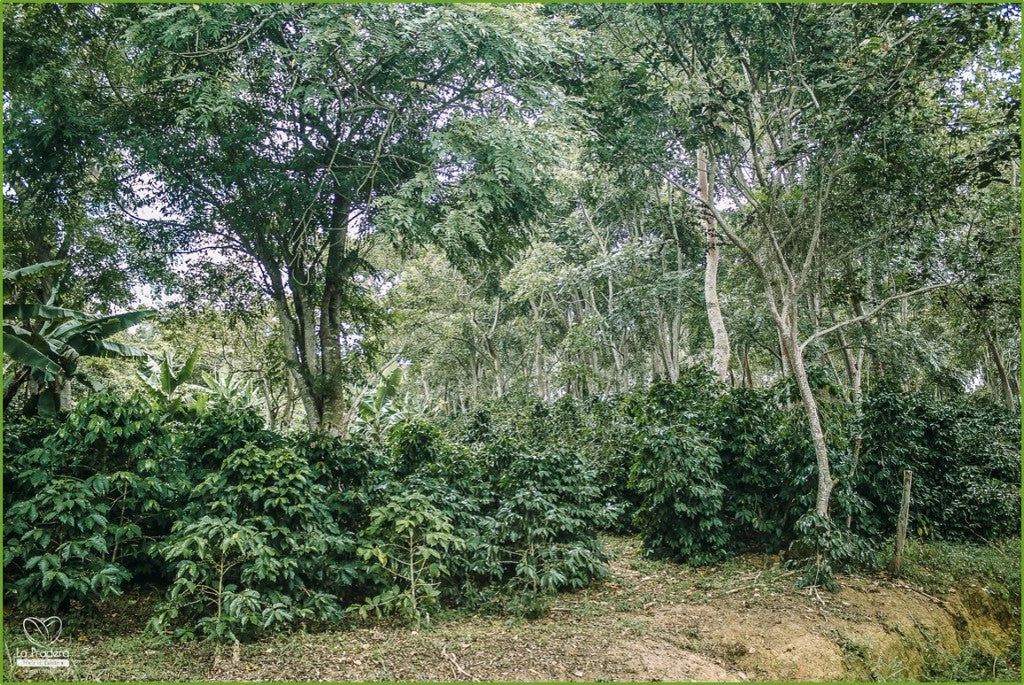

“For centuries, farmers have understood that the moon has an important role in agriculture, determining the ideal time for planting, pruning and harvesting,” Oscar explains.
“We have consistently studied the relation between the moon and coffee: growth, maturity, optimal development of sugars. We are proud to present our exclusive process profiles, a direct result of this scientific analysis, combined with our strict control of other quality factors like ripeness, innovative fermentation, and drying.”
 Finca La Primavera’s organic coffee growing under shade.
Finca La Primavera’s organic coffee growing under shade.
La Primavera and Community — Silvania, Cundinamarca
In Silvania, an hour and a half from Bogota, Francisco Tamayo is working to make Finca La Primavera a model for sustainable coffee farming in Colombia. Francisco’s family arrived to Silvania in 1976 when coffee was already planted on the fam, which his grandparents continued to cultivate. Francisco is an electrical engineer and studied robotic automation in Japan before returning to his family’s farm in 2012 to begin the process of converting it to organic coffee production.
The farm’s previous use as a cattle ranch had both pros and cons. Herds compact the soil and the ground was free from agrochemicals, meaning the soil is not contaminated and ready for conversion to organic agriculture. On the other hand, the soil was worn out and lacking nutrients. Cattle scrape off layers of soil as they graze, leading to erosion, and this left a high concentration of toxic metals, like aluminum, in the top layer of soil. Excess aluminum in the soil makes it difficult for plants to absorb nutrients; after several soil analyses Francisco and his team developed a fertilization plan to restore the soil to prepare the terrain to adequately feed the new coffee trees planted.
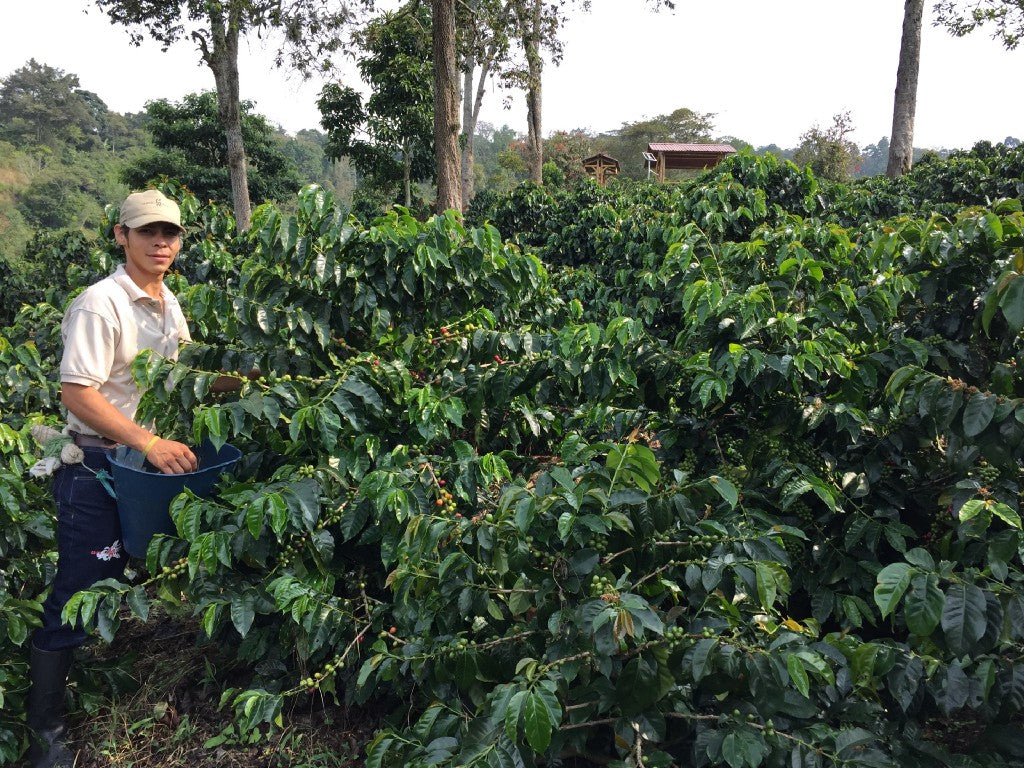

Beyond being organic, La Primavera is also certified Bird Friendly; the farm is a prime example of ecosystem restoration and has planted more than one thousand trees of various native species to act as both shade for the coffee and habitats for birds and small mammals. Francisco extends his stewardship of biodiversity beyond La Primavera and into the surrounding community of producers.



 Primavera Community in Silvania
Primavera Community in SilvaniaActing as the miller and exporter, his company Proservicol built a community lot from five neighboring producers. They, too, understand the importance of environmental preservation and of farming in symbiosis with the natural world. The nearby Sumapaz moorland is an important source of freshwater for the city of Bogota and has been a natural reserve since 1977. It includes more than 5,000 hectares of native forest.
Brazil
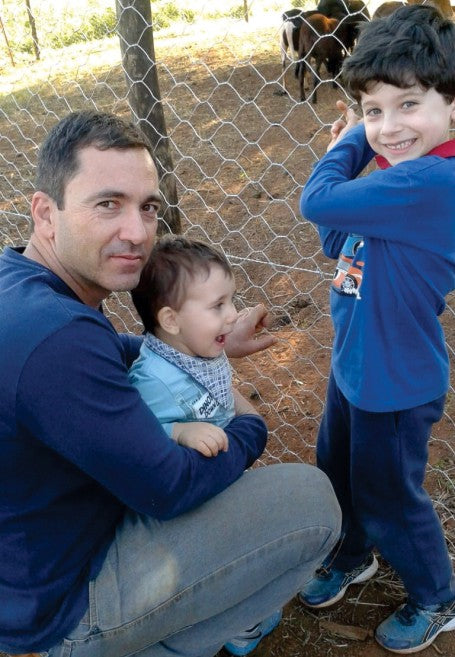
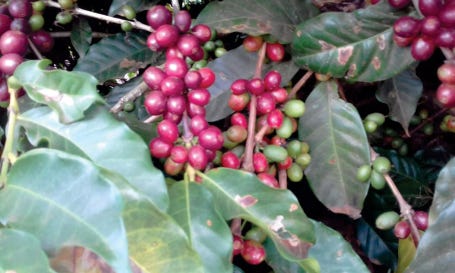

Sítio São Francisco is located in the city of Jeriquara in the Alta Mogiana region of São Paulo state. The farm is 260 hectares and produces 7,500 bags each harvest. The farm grows many varieties of Arabica coffee unique to Brazil: Red Catuaí, Yellow Catuaí, Obatã, Mundo Novo, Acaiá, IBC 12. Producer Fernando de Oliveira Sarreta’s father began coffee production on the farm. Fernando’s focus has always been on producing excellent coffee without negatively impacting the environment. This conviction led him to establish Sítio São Francisco as an organic coffee farm.

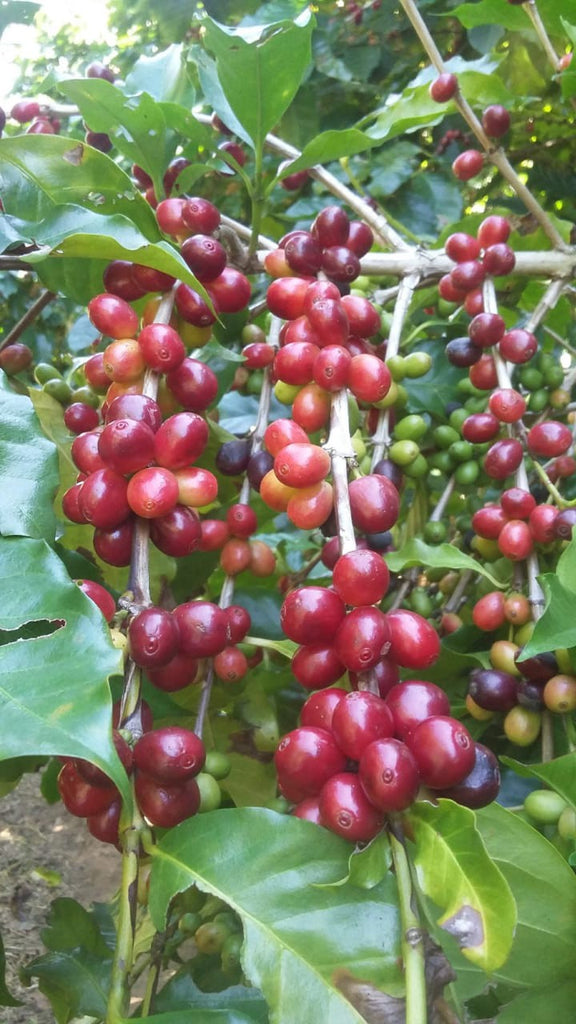
Fazenda Minamihara — Franca, Alta Mogiana
Producer Anderson Mitsuhiro Minamihara is the third generation of coffee farmers in his family. Fazenda Minimahara lies in the Cristais Paulista municipality of Franca, São Paulo state, a region with conditions well-suited for coffee production.
The farm is 150 hectares, with 95 hectares producing organic coffee of the Mundo Novo, Red and Yellow Catuaí, Obatã, Bourbon Amarelo, and Tupi varieties. Avocado trees provide a shade layer above coffee, and only biological treatments are used to control pests, diseases, and weeds. The farm’s soil is fertile and balanced, adding extra complexity to the final cup. CORCASAN member farm in San Juan del Rio Coco, Madriz, Nicaragua
CORCASAN member farm in San Juan del Rio Coco, Madriz, Nicaragua
Nicaragua
CORCASAN — San Juan del Rio Coco, Madriz
The CORCASAN Cooperative in San Juan del Rio Coco dates back to 1978. Of its roughly 250 members, more than 60 are women and all members’ farms are certified organic. Members are smallholders whose farms have been passed down between generation and subdivided into smaller parcels as parents leave their land to their children. Producers live on their farms and care for the land year-round.


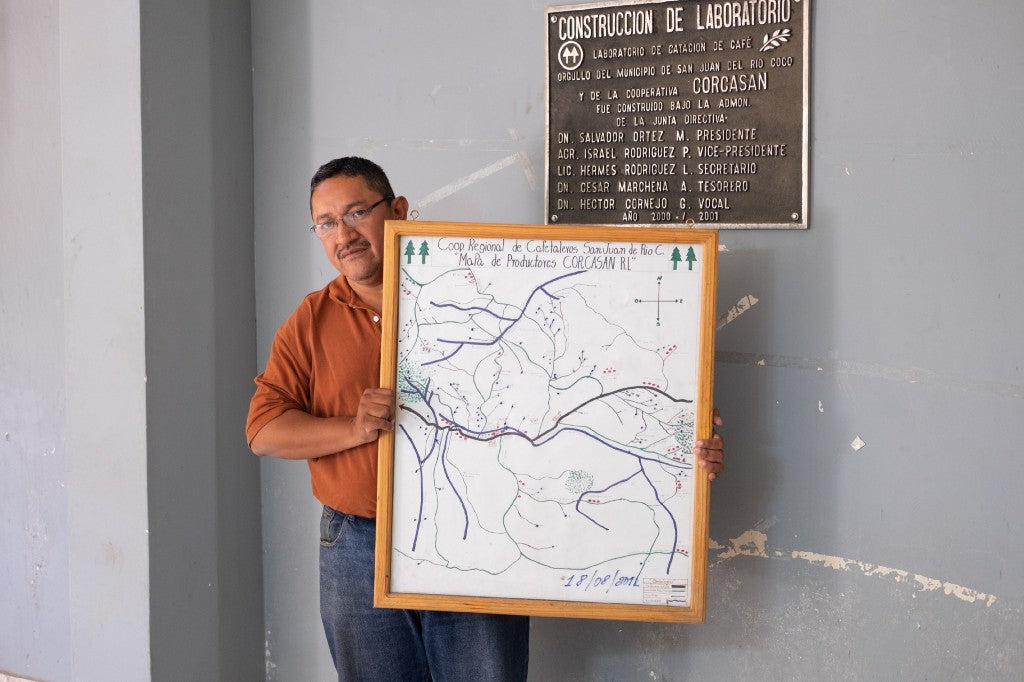
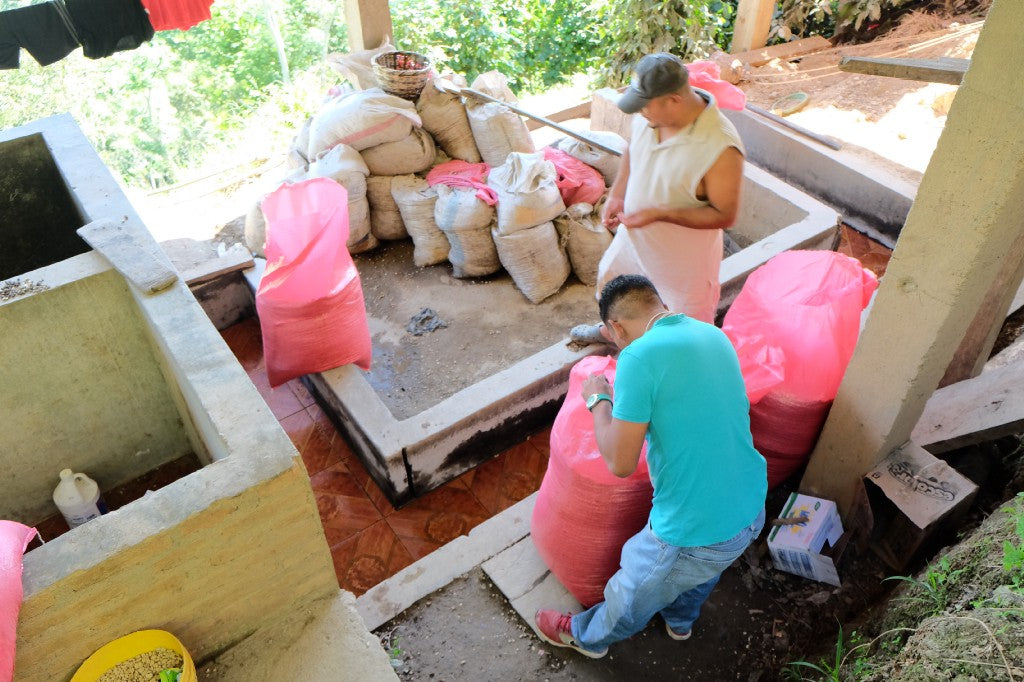
CORCASAN has assisted its members with trainings on organic methods to combat leaf rust and provides nutritional plans for families. The cooperative actively partners with other organizations and its exporter Expocamo to strengthen the resources it provides to its members.
Ethiopia

Guji Shakiso — Tade GG Farm, Sewana kebele
Shakiso is a woreda, or district, in the Guji Zone of the Oromia region. The Shakiso Wako Organic coffee comes from the Tade GG farm and is processed at the Sewana washing station in the kebele, or village, of that name. As an organic coffee, the Shakiso Wako coffee was grown without the use of any herbicides, pesticides, or other agrochemicals. The washing station assigns each lot an ID code to maintain traceability. Guji Shakiso is processed as both Natural and Washed and the coffee for the two lots was grown between 2170 and 2300 meters above sea level.



The Guji zone is home to many lush forests in addition to the farms of smallholder coffee growers. The zone’s principle fresh water source is the Ganale Dorya river, which also acts as the boundary line with the neighboring Bale zone to the east.
Indonesia

Koperasi Buana Mandiri — Aceh, Sumatra
Koperasi Buana Mandiri is a cooperative located in the Bener Meriah Regency of Aceh Province. With more than 2,000 members, the co-op has been certified both Fairtrade and Organic since 2015. Most members of Koperasi Buana Mandiri live in the remote mountains of Bener Meriah and depend on coffee farming for income. The organic certification of coffee from Mandiri attests to smallholders’ efforts to produce coffee without negatively effecting the naturally abundant soil and forests of the Bener Meriah mountains.

The Bener Meriah region of the Aceh province is a well-known Arabica coffee growing region. Most people in this region are smallholder coffee growers and own an average of half to one hectare. The high elevations of Bener Meriah are well suited for growing vegetables in addition to coffee. The Koperasi Buana Mandiri is located in the small city of Takengon, situated at the western shore of the long, open Lake Takengon, ringed by low mountains and hills. Learn more about Sumatra and its coffee.
Organic Mindset
Coffee producers and cooperatives farm and process coffee in vastly different landscapes from the Pacific Islands to Central America’s volcanic mountains, but all coffee farmers engaged in organic agriculture share an awareness of the connection between their actions and the impact of those actions. They know that the application of certain agrochemicals might have a helpful effect in the short term but that omitting that application in favor of slow, restorative fertilizations with organic compost or preventative applications of microorganisms strengthens the farm for generations into the future.
There are many facets of sustainable land use and coffee production, from improving waste management to limiting freshwater use. Coffee farms can be sustainable without being organic, but the seal of organic certification is evidence that farms and cooperatives find alternatives to agrochemicals as part of their approach to sustainability. Ally Coffee works with many organic suppliers beyond the examples listed here. Contact us with questions about sourcing organic, certified, and sustainable coffees. Finca La Primavera in Silvania, Cundinamarca, Colombia
Finca La Primavera in Silvania, Cundinamarca, Colombia

